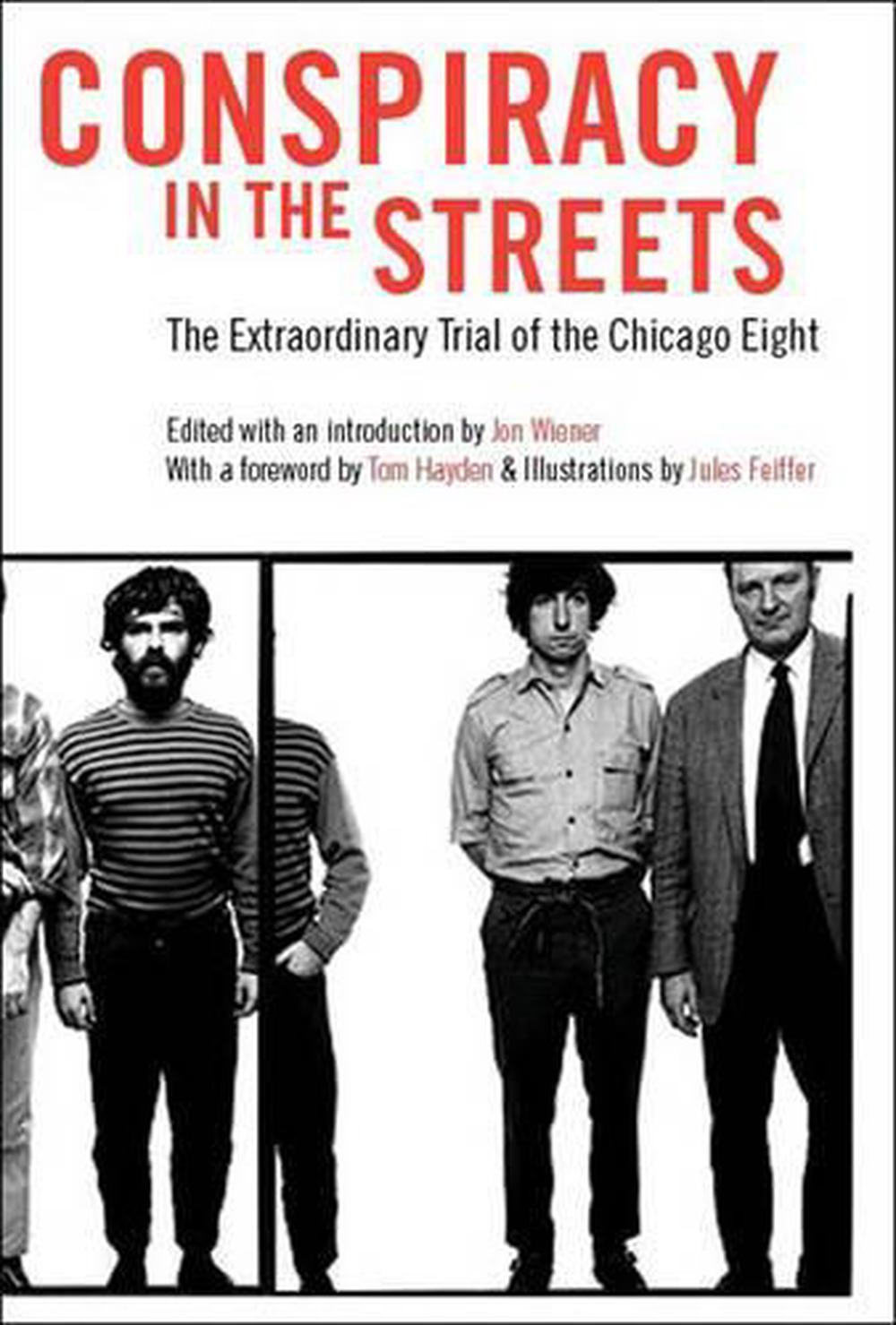
Conspiracy In The Streets
the extraordinary trial of the chicago eight
$40.50
- Paperback
302 pages
- Release Date
12 November 2006
Summary
THE TRIAL THAT IS NOW A MAJOR MOTION PICTURE
Reprinted to coincide with the release of the new Aaron Sorkin film, this book provides the political background of this infamous trial, narrating the utter craziness of the courtroom and revealing both the humorous antics and the serious politics involved
Opening at the end of 1969-a politically charged year at the beginning of Nixon’s presidency and at the height of the anti-war movement-the Trial of the Chicago Seven (which starte…
Book Details
| ISBN-13: | 9781565848337 |
|---|---|
| ISBN-10: | 1565848330 |
| Author: | Jon Weiner |
| Publisher: | The New Press |
| Imprint: | The New Press |
| Format: | Paperback |
| Number of Pages: | 302 |
| Edition: | 1st |
| Release Date: | 12 November 2006 |
| Weight: | 311g |
| Dimensions: | 190mm x 132mm |
You Can Find This Book In
What They're Saying
Critics Review
“The Conspiracy in the streets needs: freedom, actors, peace, turf, money, sunshine, musicians, instruments, people, props, cars, air, water, costumes, sound equipment, love, guns, freaks, friends, anarchy, Huey free, a truck, airplanes, power, glory and old clothes, space truth, Nero, paint, help, rope, swimming hole, ice cream, dope, nookie, moonship, Om, lords, health, no hassles, land, pigs, time, patriots, spacesuits, a Buick, people’s justice, Eldridge, lumber, panthers, real things, good times. - From a pamphlet distributed in The Week before the Chicago Eight trial “Conspiracy? Hell, we couldn’t agree on lunch.” - ABBIE HOFFMAN”
About The Author
Jon Weiner
Jon Wiener is a contributing editor to The Nation and is host and producer of “Start Making Sense,” The Nation’s weekly podcast. An emeritus professor of U.S. history at UC Irvine, he is the author of Gimme Some Truth, Come Together, Historians in Trouble (The New Press), and, most recently, Set the Night on Fire: L.A. in the Sixties (with Mike Davis). He lives in Los Angeles. Tom Hayden (19392016) was a California state senator for eighteen years and was the author of Irish on the Inside, The Zapatista Reader, Rebel, and Street Wars (The New Press). Jules Feiffer is a Pulitzer Prizewinning cartoonist, novelist, and playwright based in New York City.
Returns
This item is eligible for free returns within 30 days of delivery. See our returns policy for further details.




